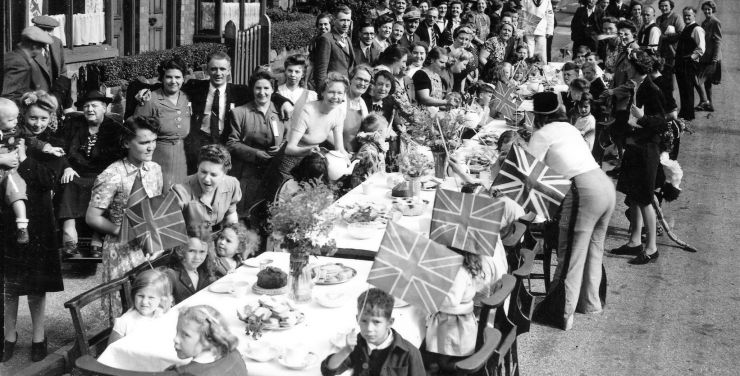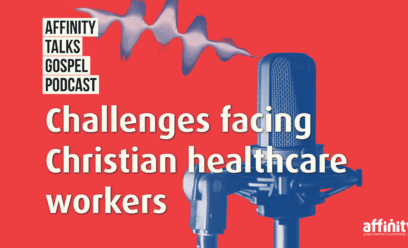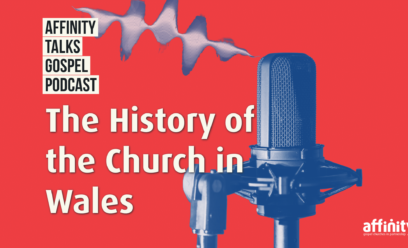VE Day – Joy and Sadness

Observing the media coverage building up to the 75th anniversary of VE Day last Friday has been, for me, a time of gratitude and celebration but also some sad reflection.
Gratitude
VE Day marks the end of hostilities with Nazi Germany after they formerly surrendered to allied forces towards the end of the 2nd World War. The conflict with Japan continued a little longer. The broadcast media did a great job of putting together historic recordings and live interviews. It was fascinating to hear the stories of people who were involved in the war and the eventual victory and subsequent celebrations. We were given a real sense of the rather unassuming bravery and sacrifice shown by many people in the armed forces, and indeed those supporting them at home. People casually described their experience of dangerous missions, being bombed, shot at, and of friends and colleagues falling around them.
Most of us living now have not known such proximity to death all around us. The Covid-19 crisis has some parallels in the potential scale of fatalities but not the same national sense of peril and the need for outstanding resilience.
I am so grateful for those people who put their lives on the line to fight the enemy of that time. Some did not survive; some were left damaged mentally and physically. They gave their lives so we could live in freedom. And last Friday we had an opportunity to remember and to celebrate. Because of the lockdown many streets had front garden tea parties and it was good to chat with neighbours in a way that was strangely reminiscent of the community spirit of that time.
Sadness
And yet at the same time the remembrance and the whole celebration seemed to almost completely godless. I am sure there were God-fearing people around then and now who saw victory in World War 2 as an answer to prayer. But I didn’t hear those voices. All the grand old gentlemen and ladies who were interviewed articulated the triumph of human achievement, community spirit, and a great deal of good fortune. God was not necessary for the explanation of any of it – the victory, or even the fact of the war in the first place.
Even the prominent church representatives seemed to be chanting the same humanist mantra of reconciliation and building a better, fairer world. Perhaps this was because no special church services were able to take place; perhaps it was because they had nothing distinctive to say.
In a way the end of the war marked the beginning of a new era of self-confident, individualistic materialism. In addressing the post-war challenges of rebuilding a shattered Europe, many of the Western nations did so by creating a society in which God was relegated to the position of an absent elder statesman. The pursuit of freedom, wealth and pleasure became the new religion.
We are facing a deadly virus right now; may God help us not to think we can defeat it merely as plucky individuals working for a common cause. Let us realise that the sovereign Lord allows these trials to come so that we might be moved to ask big questions about meaning and life, so that we might find that the answers we seek are only found in Christ and turning to him in repentance and faith.
As we contemplate our own mortality, we realise that Covid-19 is just one of many causes of death that we cannot ultimately defeat; if not this virus, then something else will get us sooner or later. But when we look to the cross of Calvary, we see the ultimate act of self-sacrifice, leading to the most significant victory of all time – one which was complete, lasting and one which brings glory not to man and his endeavours, but to God.
So, let us give thanks for the good people who served our country in wartime, and those who do so again in today’s time of crisis.
But let’s look to and celebrate the ultimate hero.
Graham Nicholls is Director of Affinity
Related articles
Stay connected with our monthly update
Sign up to receive the latest news from Affinity and our members, delivered straight to your inbox once a month.



